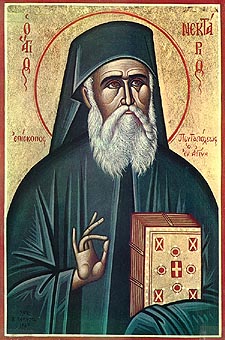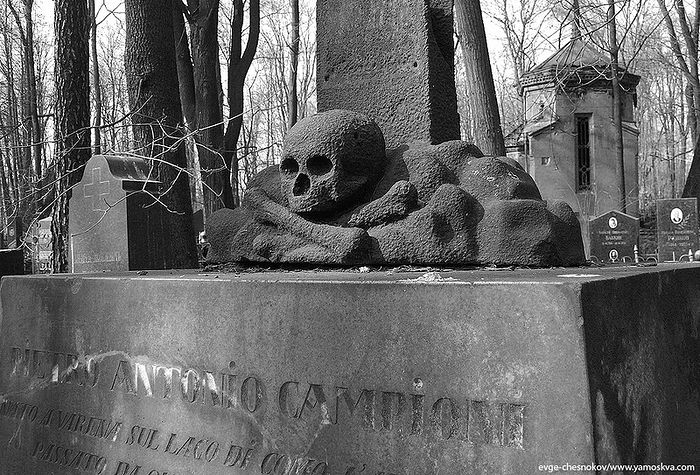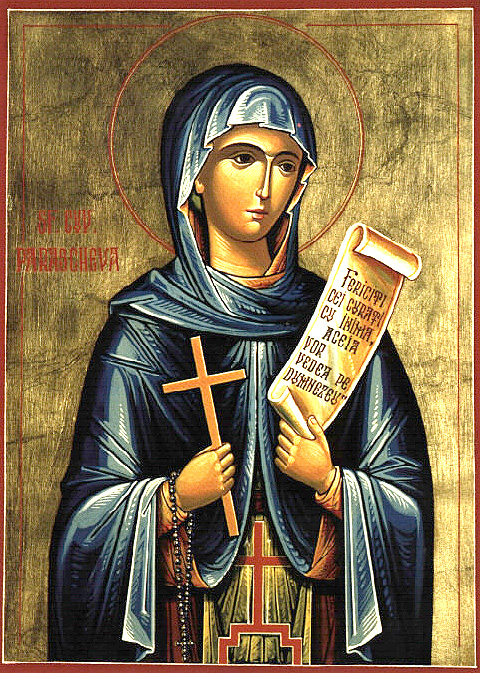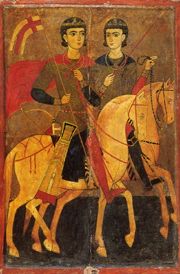 Translators note: This homily by St. Dimitry of Rostov makes varied use of the Church Slavonic concept of “Pokrov”. The feast of the Protection of the Mother of God is likewise also called the feast of the Protecting Veil of the Mother of God. Perhaps this is because the feast holds a greater place of honor in the Slavic typicon than in the Greek; it celebrates the victory of the Byzantines over the Slavic invaders accomplished through the miraculous intercession of the Theotokos, who was seen in the air by Sts. Andrew and Epiphanios. The Slavonic word “Pokrov” has several meanings: It is the protection, covering, hiding place, and protecting veil of the Most Holy Mother of God. It is her omophorion, which covers, protects, and hides us from all peril.
Translators note: This homily by St. Dimitry of Rostov makes varied use of the Church Slavonic concept of “Pokrov”. The feast of the Protection of the Mother of God is likewise also called the feast of the Protecting Veil of the Mother of God. Perhaps this is because the feast holds a greater place of honor in the Slavic typicon than in the Greek; it celebrates the victory of the Byzantines over the Slavic invaders accomplished through the miraculous intercession of the Theotokos, who was seen in the air by Sts. Andrew and Epiphanios. The Slavonic word “Pokrov” has several meanings: It is the protection, covering, hiding place, and protecting veil of the Most Holy Mother of God. It is her omophorion, which covers, protects, and hides us from all peril.
During the last, difficult times, when with the increase of our sins our perils have also increased, in fulfillment of the words of the holy apostle Paul: In perils of waters, in perils of robbers, in perils by mine own countrymen, in perils by the heathen, in perils in the city, in perils in the wilderness, in perils in the sea, in perils among false brethren (2 Cor. 11:26), when in fulfillment of the words of the Lord Himself, nation shall rise against nation, and kingdom against kingdom: and there shall be famines, and pestilences, and earthquakes, in divers places (Matt. 24:7), when we are pressed with invasions by foreign nations, civil wars, and fatal diseases, the Most Holy and Most blessed Virgin Mary, the Mother of the Lord, gives us her protection as our shield, in order to free us from all disasters; in order to protect us from famines, floods, and earthquakes, to save us from wars and diseases, and preserve us unharmed under her protection. A sign of this protection appeared in the royal city of Constantinople during the reign of the pious King Leo the Wise in the glorious church of the Most Holy Theotokos in Blachernae. There during the All-Night Vigil for Sunday, on the first day of the month of October, in the fourth hour of the night, in the presence of many people, St. Andrew the fool for Christ lifted up his eyes and saw the Heavenly Queen, the Protectress of the whole world, the Most Holy Virgin Theotokos, standing in the air and praying, shining with the light of the sun and covering the people with her honorable omophorion. Seeing this, St. Andrew said to his disciple Blessed Ephiphanios:

 Saint Nectarius, the great wonderworker of modern times, was born Anastasius Kephalas in Selebria, Thrace on October 1, 1846.
Saint Nectarius, the great wonderworker of modern times, was born Anastasius Kephalas in Selebria, Thrace on October 1, 1846. A Homily in Commemoration of the Departed On Demetrius Saturday
A Homily in Commemoration of the Departed On Demetrius Saturday Saint Paraskeva the New was born into a pious family, living during the eleventh century in the village of Epivato, between Silistra and Constantinople. Her older brother Euthymius became a monk, and later he was consecrated as Bishop of Matidia. One day, while attending the divine services, the words of the Lord pierced her heart like an arrow, “If any man will come after Me, let him deny himself” (Mt. 16:24). From that time she began to distribute her clothing to the needy, for which reason she endured much grief from her family.
Saint Paraskeva the New was born into a pious family, living during the eleventh century in the village of Epivato, between Silistra and Constantinople. Her older brother Euthymius became a monk, and later he was consecrated as Bishop of Matidia. One day, while attending the divine services, the words of the Lord pierced her heart like an arrow, “If any man will come after Me, let him deny himself” (Mt. 16:24). From that time she began to distribute her clothing to the needy, for which reason she endured much grief from her family. October 7
October 7




